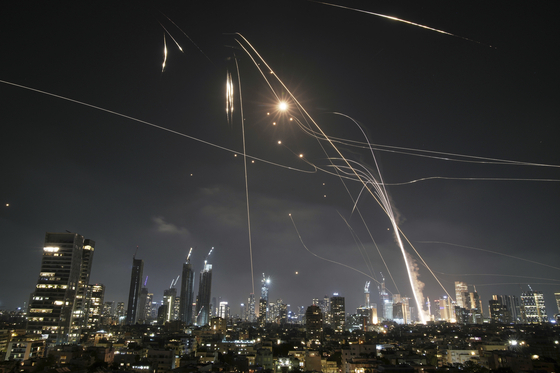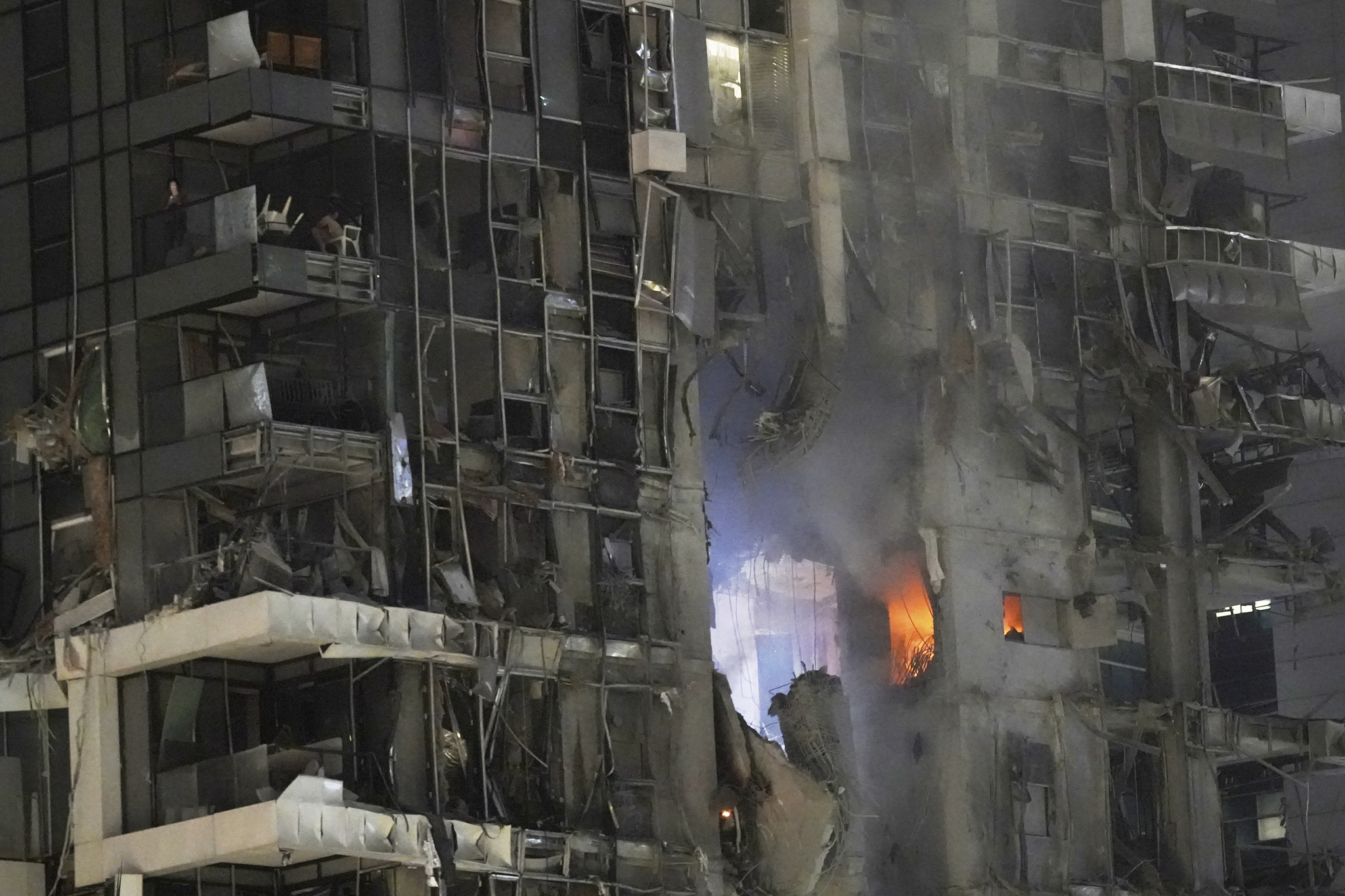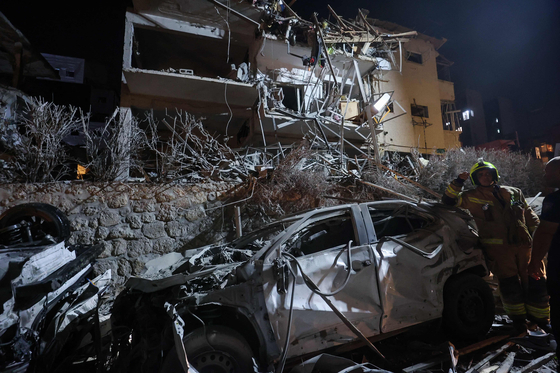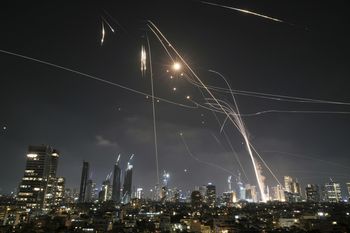
Israeli Iron Dome air defense system fires to intercept missiles over Tel Aviv, Israel, on June 13 [JOONGANG ILBP]
Iran launched hundreds of missiles toward Israel on Friday night in a large-scale retaliatory strike following an Israeli air raid that reportedly damaged Iranian nuclear facilities.
The Israel Defense Forces (IDF) said it detected dozens of incoming missiles from Iran around 9 p.m., prompting air raid sirens across the country. The military said fighter jets were deployed to intercept the projectiles.
Explosions were heard in major cities including Tel Aviv and Jerusalem, according to CNN. Sirens rang throughout the country, and residents sought safety in bomb shelters.
Israeli news outlets including Ynetnews published footage showing smoke rising from high-rise buildings in Tel Aviv, reportedly hit during the barrage.
Local broadcaster N12 reported that Iran launched between 150 and 200 missiles, hitting approximately nine locations across Israel.
However, IDF spokesperson Daniel Hagari said fewer than 100 missiles were launched in two waves and that most were intercepted before reaching Israeli airspace. He added that only minor damage occurred, mainly from falling debris.
The Associated Press, citing U.S. military officials, reported that American forces assisted Israel in intercepting the missiles.

Fire and smoke rises from a destroyed building that was hit by a missile fired from Iran, in Tel Aviv, Israel on June 13. [AP/YONHAP]
Roughly an hour after the attack began, the IDF advised the public that it was safe to exit shelters, though it urged citizens to remain alert and stay near protected areas.
According to the Times of Israel, emergency service Magen David Adom reported 35 people injured, including one critically and four seriously.
Iran’s state-run IRNA news agency described the missile launch as a firm response to what it called the Zionist regime’s “brutal attack.” The agency said the operation involved the firing of hundreds of ballistic missiles.
Tasnim, a semiofficial Iranian news outlet, claimed the missiles targeted Israel’s Ministry of Defense and intelligence facilities in Tel Aviv, and that some successfully penetrated Israel’s air defense systems. Haifa, a northern port city, was also said to be among the targets.
Iran’s Press TV reported that Iranian forces destroyed two Israeli F-35 fighter jets and several drones. The claim has not been independently verified.
Israeli Defense Minister Yoav Gallant denounced Iran’s actions, saying the missile strike “crossed a red line” by targeting civilian areas. “We will ensure that the Ayatollah regime pays a heavy price for its actions,” Gallant said in a statement.
Iran’s Supreme Leader Ayatollah Ali Khamenei responded in a televised message, blaming Israel for triggering the conflict. “They started this war,” he said. “The Zionist regime has made a grave mistake and error.”

An Israeli firefighter stands next to a destoryed car at a site hit by a missile fired from Iran, in Ramat Gan on the outskirts of Tel Aviv on June 13. [AFP/YONHAP]
Earlier in the day, the IDF carried out a pre-emptive strike involving 200 fighter jets targeting Iran’s Natanz nuclear facility in the central province of Isfahan. The strikes also targeted high-ranking military commanders and nuclear scientists.
Later that afternoon, Israel launched another round of airstrikes on Iranian ballistic missile production facilities and launchpads.
Israeli Prime Minister Benjamin Netanyahu has said the airstrike was conducted in response to signs that Iran had advanced to a nuclear weapons development stage.
The escalation has pushed the region to a critical juncture, raising concerns about further instability in the Middle East.
Translated from the JoongAng Ilbo using generative AI and edited by Korea JoongAng Daily staff.
BAE JAE-SUNG [[email protected]]







